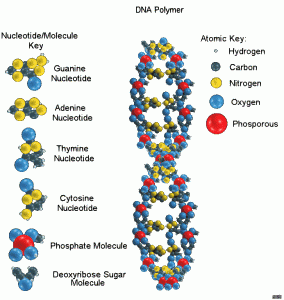Altered cognition and emotion in depersonalization disorder
Depersonalization Disorder (DPD) is a dissociative disorder in which sufferers are affected by persistent feelings of depersonalization. The symptoms include a sense of automation, feeling a disconnection from one’s body, and difficulty relating oneself to reality. In a recent study Medford et al. reports that patients with DPD do not process emotionally salient material in […]
 Depersonalization Disorder (DPD) is a dissociative disorder in which sufferers are affected by persistent feelings of depersonalization. The symptoms include a sense of automation, feeling a disconnection from one’s body, and difficulty relating oneself to reality. In a recent study Medford et al. reports that patients with DPD do not process emotionally salient material in the same way as healthy controls, in accordance with their subjective descriptions of reduced or absent emotional responses Emotional memory in depersonalization disorder: A functional MRI study. Medford et al. in Psychiatry Res. 2006 Nov 3; Abstract This study examines emotional memory effects in primary depersonalization disorder (DPD). A core complaint of DPD sufferers is the dulling of emotional responses, and previous work has shown that, in response to aversive stimuli, DPD patients do not show activation of brain regions involved in normal emotional processing. We hypothesized that DPD sufferers would not show the normal emotional enhancement of memory, and that they would not show activation of brain regions concerned with emotional processing during encoding and recognition of emotional verbal material. Using fMRI, 10 DPD patients were compared with an age-matched healthy control group while performing a test of emotional verbal memory, comprising one encoding and two recognition memory tasks. DPD patients showed significantly enhanced recognition for overtly emotive words, but did not show enhancement of memory for neutral words encoded in an emotive context. In addition, patients did not show activation of emotional processing areas during encoding, and exhibited no substantial difference in their neural responses to emotional and neutral material in the encoding and emotional word recognition tasks. This study provides further evidence that patients with DPD do not process emotionally salient material in the same way as healthy controls, in accordance with their subjective descriptions of reduced or absent emotional responses.
Depersonalization Disorder (DPD) is a dissociative disorder in which sufferers are affected by persistent feelings of depersonalization. The symptoms include a sense of automation, feeling a disconnection from one’s body, and difficulty relating oneself to reality. In a recent study Medford et al. reports that patients with DPD do not process emotionally salient material in the same way as healthy controls, in accordance with their subjective descriptions of reduced or absent emotional responses Emotional memory in depersonalization disorder: A functional MRI study. Medford et al. in Psychiatry Res. 2006 Nov 3; Abstract This study examines emotional memory effects in primary depersonalization disorder (DPD). A core complaint of DPD sufferers is the dulling of emotional responses, and previous work has shown that, in response to aversive stimuli, DPD patients do not show activation of brain regions involved in normal emotional processing. We hypothesized that DPD sufferers would not show the normal emotional enhancement of memory, and that they would not show activation of brain regions concerned with emotional processing during encoding and recognition of emotional verbal material. Using fMRI, 10 DPD patients were compared with an age-matched healthy control group while performing a test of emotional verbal memory, comprising one encoding and two recognition memory tasks. DPD patients showed significantly enhanced recognition for overtly emotive words, but did not show enhancement of memory for neutral words encoded in an emotive context. In addition, patients did not show activation of emotional processing areas during encoding, and exhibited no substantial difference in their neural responses to emotional and neutral material in the encoding and emotional word recognition tasks. This study provides further evidence that patients with DPD do not process emotionally salient material in the same way as healthy controls, in accordance with their subjective descriptions of reduced or absent emotional responses.







I would like to see a study that measures levels of GABA, 5-HT, norepinephrine and glutamte on patients suffering depersonalization. I experienced this disorder for a short while while on a combination of valproic acid, gabapentin and nefazodone. It worsened as the nefazodone was increased and valproic acid was decreased. The sypmtoms resolved slowly when the medications were discontinued.